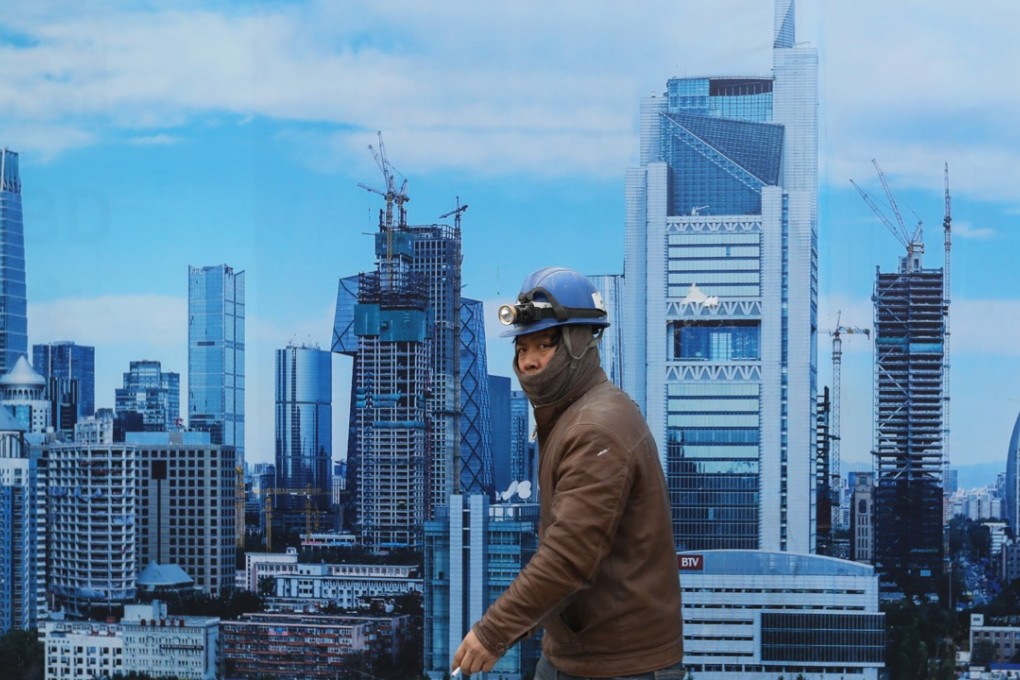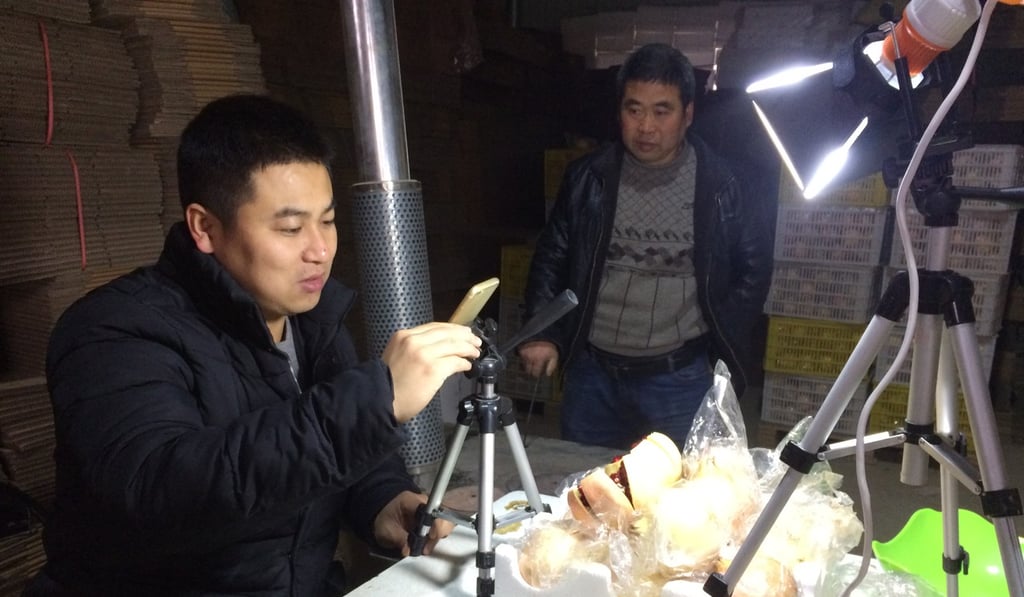Returning migrants: the Chinese economy’s next great hope?
The great migration of rural workers into China’s cities helped to create the world’s second largest economy. Now a new avenue of growth is opening up, as the rise of e-commerce fuels a reverse migration of entrepreneurs

It’s early on a crisp winter morning in Yujin, a sleepy village in northern China, and two young men are getting ready to start work.
Their days consist of selling locally grown fruit and vegetables. Today, it is pomegranates picked up from a neighbouring village, Shangchen, as it is too early in the year for the sweet potatoes that Yujin is known for. Working together with neighbours comes naturally in poor, rural areas like these, where farming has long been the only source of income. And, for the men, it’s second nature to make the most of any resources that are available. All they need is a basket of pomegranates, a set of lights and … an iPhone 6.
“Hello baby, let’s start,” one of the men, Handsome, speaks into his phone. Handsome is a live-streamer, whose job is to promote agricultural products online.

The operation Handsome and Xu are running may be modest, but the work they are involved in represents one of the great new hopes for the Chinese economy.

For years, Chinese rural workers have been leaving their villages behind for new lives in the cities. In 2016 alone, some 282 million rural Chinese moved to cities – more than the population of Germany, France and Turkey combined. The scale of migration can be seen every Lunar New Year – when around 3 billion passenger journeys are taken over 40 days – many of them by migrant workers visiting their families. While this migration built the mega cities that have helped China become the world’s second largest economy, it has also had adverse effects, overcrowding cities and impoverishing the villages left behind.